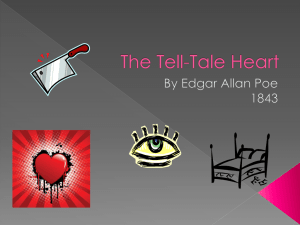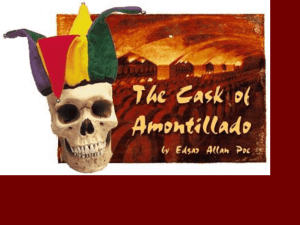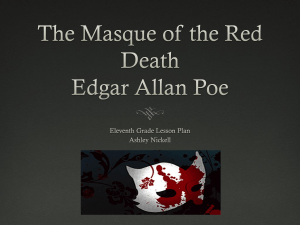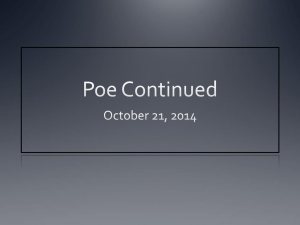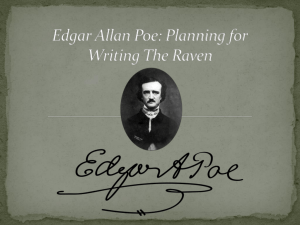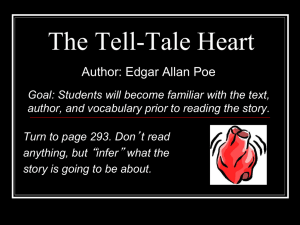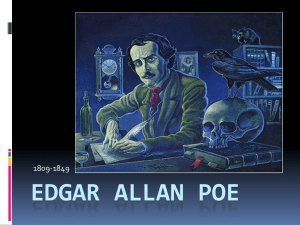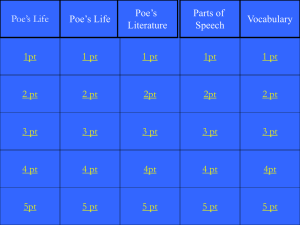The Cask of Amontillado Powerpoint
advertisement
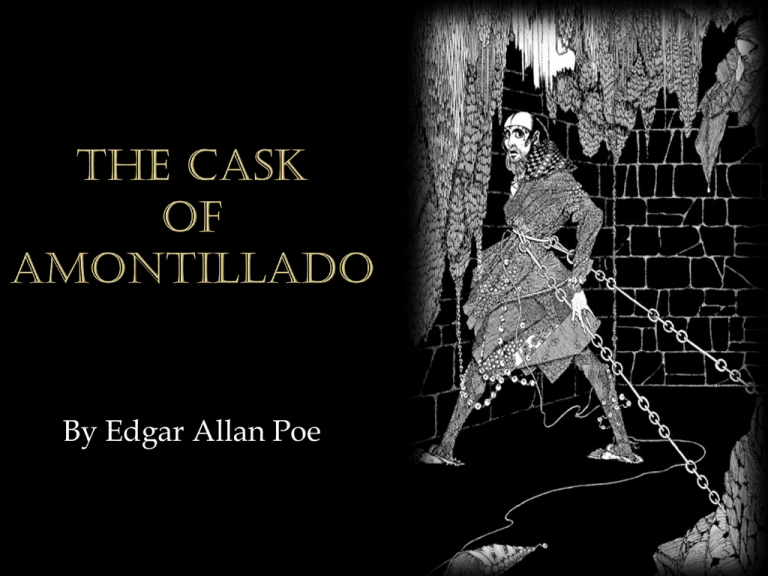
By Edgar Allan Poe American writer, poet, editor and literary critic, considered part of the American Romantic Movement. Best known for his tales of mystery and the macabre, Poe was one of the earliest American practitioners of the short story and is considered the inventor of the detectivefiction genre. He is further credited with contributing to the emerging genre of science fiction. He was the first well-known American writer to try to earn a living through writing alone, resulting in a financially difficult life and career. Words are frequently used for the way they sound, as well as for their meanings. Poe's rhythm and internal rhyme becomes almost hypnotic in many poems. The difficult vocabulary reflects the style of Poe's time period. Every important word is intended to evoke a mood or atmosphere in the reader, and Poe aimed for the same effect regardless of whether the work was prose or poetry. Poe builds suspense throughout the stories, revealing some facts while withholding others. The narration is frequently first person, which makes the reader's connection to the story more intimate. Poe's descriptions are usually Minutely detailed to give a sense of reality to the stories, despite their supernatural atmosphere. The use of irony and black humor is common. Gothic elements are usually prominent in his writing: the supernatural, evil animals, and dark, gloomy settings Poe's depictions of how the human mind works heighten a reader's connection to the story. The surprise endings provide a reason to go back through the work to look for clues missed on the first reading. The story is set in a nameless Italian city in an unspecified year and concerns the deadly revenge taken by the narrator on a friend whom he claims has insulted him. Like several of Poe's stories the narrative revolves around a person being buried alive As in "The Black Cat" and "The Tell-Tale Heart", Poe conveys the story through the murderer's perspective. First published in the November 1846 issue of Godey's Lady's Book. A legend holds that the inspiration for "The Cask of Amontillado" came from a story Poe had heard at Castle Island in Massachusetts when he was a private there in 1827. According to this legend, Poe was told the story of a lieutenant named Drane who killed another officer, named Massie, by burying him alive. Poe wrote his taleas a response to his personal rival Thomas Dunn English. Poe and English had several confrontations, usually revolving around literary caricatures of one another. One of English's writings went a bit too far, and Poe successfully sued his editors at The New York Mirror for libel in 1846. That year English published a revenge-based novel called 1844, or, The Power of the S.F. It included a character named Marmaduke Hammerhead, the famous author of "The Black Crow", who uses phrases like "Nevermore" and "lost Lenore", referring to Poe's poem "The Raven". In this parody, Poe was depicted as a drunkard, liar, and domestic abuser.
